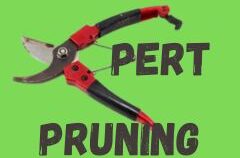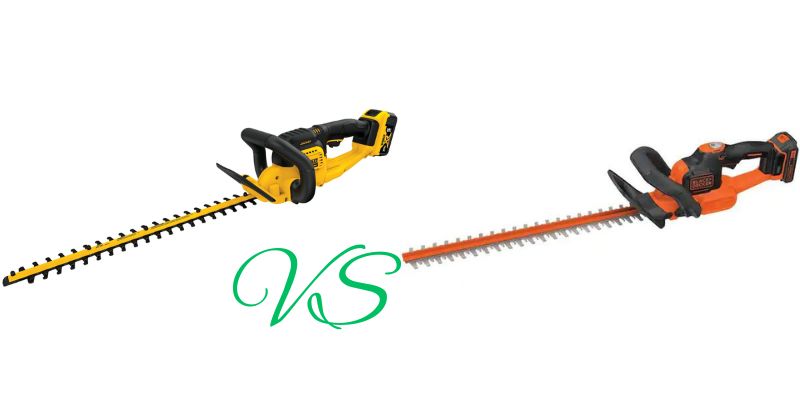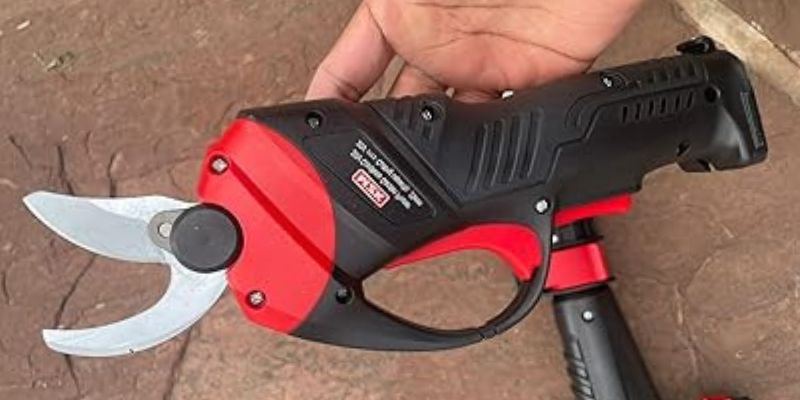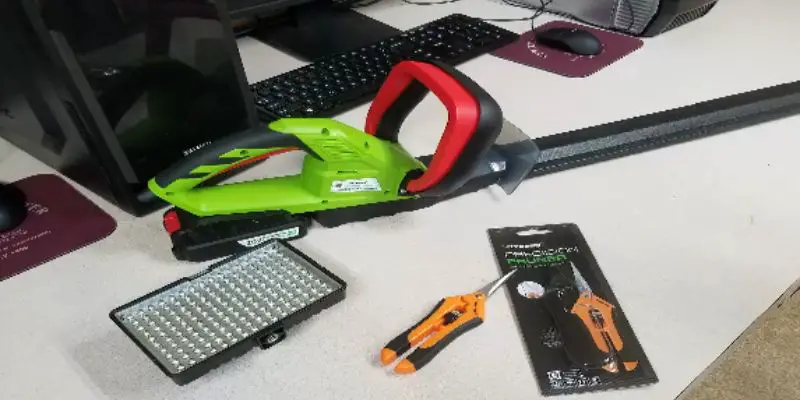After many years on the job, I feel I’ve put about every outdoor power tool brand through its paces. Two names I keep coming back to for grass trimmers, shrubbers, and shears are Black & Decker vs DeWalt. Though both are reputable, each has its pros and cons regarding usage, durability, ergonomics, and cost-effectiveness.
In this comparison, I aim to share what I’ve learned from years of hands-on experience. From wrestling hedges to grooming lawns, no job is too tough to give me practical insight. How well do they handle extended runtimes? Which offers that finer motor control? I’ll outline where each brand truly shines, and where there’s room for improvement.
Whether you’re a fellow professional like me or just a homeowner after the right gear, I hope my real-world perspective provides useful guidance. Some tools profess top features, but the proof is in the projects. By assessing strengths and weaknesses side by side, I aim to help you identify which supplier best fits your specific needs and budget. My goal is to find solutions that last through our demanding industry. Hopefully, my feedback will help point you towards gear that performs like a dream from dawn to dusk.
Power and Performance
Let’s start with the all-important power and performance category. At the end of the day, you need tools that can get the job done efficiently without bogging down.
DeWalt has the edge here, especially when it comes to gas-powered trimmers and shears. Their robust 25cc engines found in models like the DCST920 string trimmer deliver the type of strong, consistent power that pros demand. I’ve used DeWalt trimmers to take down thick brambles and deep overgrowth that would cause lesser trimmers to burp and stall.
Their cordless lineup is also impressively powerful thanks to beefy brushless motors and high-capacity batteries. The 20V Max line can almost match corded models in terms of runtime and cutting performance. I remember being skeptical of battery-powered tools at first, but my DeWalt 60V Max shrub trimmer changed my tune entirely.
Black & Decker is by no means a slouch in this category, but their trimmers and shears trend a bit more toward the consumer/homeowner side of the spectrum. Their corded electric tools like the LSTE525 can battle toe-to-toe with DeWalt for lighter-duty trimming. And their 40V Max cordless models provide a nice balance of power and portability for small to medium jobs.
But if you need a heavy-duty trimmer or shears that can power through all-day commercial use without battery swaps or excessive strain, DeWalt is going to give you more reliable performance. The high-torque power just isn’t quite there in most of Black & Decker’s lineup.
Durability and Build Quality
Working outdoors day in and day out, you need tools that can survive drops, water exposure, excessive vibrations, and other abuse. Both Black & Decker and DeWalt make reasonably rugged trimmers and shears, but DeWalt gets the nod in overall tank-like build quality.
The DeWalt string trimmers, for instance, have rigid metal drive shafts compared to Black & Decker’s mostly plastic construction. This lends a sturdier feel and better distribution of rotational force. I’ve had occasional issues with drive cables disconnecting or shafts cracking on older Black & Decker models after a few seasons of hard use.
DeWalt’s shears and hedge trimmers like the DCHT895 also feel downright indestructible with thick magnesium gear cases, steel blades, and ruggedized components. I’ve dropped my DeWalt shrub trimmer off a truck tailgate and kept on trimming without issues. That level of durability saves me money by preventing constant tool replacements.
To be fair, even mid-range Black & Decker tools tend to hold up reasonably well for DIY use around the house. Their lower-cost, all-plastic models will likely disappoint for heavy-duty commercial applications. But overall, DeWalt simply uses more premium materials and robust engineering across its entire lineup.
Best Electric Black & Decker Hedge Trimmer – Top 3 Corded Picks
Ergonomics and User Experience
Comfort and usability are especially important for landscaping pros who use their trimmers and shears for hours on end. Even small differences in weight distribution, balance, vibration levels, and grip design can make a significant difference when you’re battling hand fatigue all day.
In my experience, DeWalt has put more thought into ergonomics and quality-of-life features tailored for pros. Their rubber over-molded grips, rotating rear handles, and adjustable front assist handles help improve leverage and minimize hand/wrist strain. Models like the DCST920P even have a built-in line trimmer to save you time and effort.
Weight balance is also better distributed on DeWalt tools thanks to smarter positioning of motors, batteries, and other core components. While specs are fairly comparable on paper, the trimmer just feels more comfortable in use. Less muscle strain means you can work longer without tiring out.
Where DeWalt falls a bit behind is in the noise department. Their gas trimmers like the DCST972 tend to be louder than competitors’ offerings. Eye and ear protection are essential when using DeWalt’s high-powered lineup.
Black & Decker put a bit more focus on user-friendly touches for their consumer audience. Easy-load string trimmers, battery level indicators, and adjustable spaceguard plants help make their tools more approachable. The ultra-lightweight designs of electric models like the LST136B also make them easier to use for extended periods by less experienced operators.
But overall ergonomic superiority goes to DeWalt’s pro range and smart design choices that reduce fatigue and boost productivity. In the landscaping business, even marginal improvements in comfort translate to getting more work done.
Black & Decker vs Dewalt Maneuverability and Efficiency
One of the most important factors for landscapers is having trimmers and shears that can access tight spaces and provide clean, efficient cuts. Excessive trimming time impacts your bottom line, so performance and efficiency matter. In terms of maneuverability, DeWalt and Black & Decker each have their respective strengths.
DeWalt’s shrub trimmers like the DCHT895M2 boast an innovative 7-position articulating head that allows you to precisely reach branches at any angle. On the flip side, Black & Decker models with a pivoting shaft design make it easier to navigate under shrubs and bushes or reach close to fences and walls. Both approaches have proven useful for me in different scenarios.
String trimmer maneuverability is fairly comparable between the brands. Most models use standard curved shafts or straight-shaft designs that can be bulky in extremely tight quarters. However, DeWalt does offer some trimmer attachment capability that improves usability, like a 90-degree edging head.
As far as trimming/cutting efficiency, DeWalt’s raw power tends to translate to cleaner, faster cuts – especially on larger diameter branches. Their dual-action blades slice through thick growth in fewer passes compared to B&D’s single-action design. With gas and cordless shears, that efficiency improvement can add up over long workdays.
DeWalt also has more line size options and specialized trimmer heads to handle heavy overgrowth without bogging down. Their Speed Release head, for instance, makes reloading simple and prevents snapped or jammed lines that slow down progress.
Black & Decker certainly holds its own for basic trimming tasks around the yard. The Automatic Feed System found on many of their trimmers does a nice job advancing line when needed to maintain cutting efficiency. You’ll just notice slower progress compared to pro-duty DeWalt tools when slicing through thick weeds and brambles.
Black and Decker vs DeWalt Battery Tech and Runtime
For professional landscaping crews that need maximum portability and runtime, reliable battery tech and charging systems are critical considerations. This is another area where DeWalt demonstrates its pro-focused approach and long-term thinking.
DeWalt’s superior lithium-ion batteries deliver a combination of high capacity and longevity that most brands can’t match. Max batteries like the 20V and 60V lines have allowed me to ditch the hassles of gas altogether for most trimmer and shears applications. Their brushless motors also promote efficient energy usage compared to Black & Decker’s stock brushed designs.
I’ve gotten multiple hours of heavy cutting from a full charge on my DeWalt 60V battery setup – enough to easily handle most residential jobs without needing to swap out batteries mid-project. These batteries last for years and resist the dreaded “droop” or weak charge cycle that plagues lower-quality battery cells.
DeWalt’s fast charging systems coupled with spare battery versatility also keep you productive. With a couple of spare batteries and their rapid charging station, you’re never stuck waiting hours for a recharge to get back to work.
Black & Decker falls behind here, as their battery cells and motors simply aren’t as efficient or optimized for heavy-duty runtime scenarios. Even the 60V Max versions will drain fairly quickly under load compared to DeWalt’s premium technology.
While the lithium-ion chemistry is serviceable and you can get decent runtime on lighter-duty tasks, Black & Decker’s batteries simply don’t measure up to DeWalt’s for professional all-day use. Runtimes are shorter, charging is slower, and long-term battery life isn’t as robust in my experience.
Versatility and Compatibility
Having a versatile tool system that works together seamlessly is another important consideration, especially for landscaping crews trying to operate efficiently. Both DeWalt and Black and Decker have put effort into expanding their ecosystems, but there are some key differences.
DeWalt’s battery-sharing system across the 20V Max and 60V Max lineups is incredibly robust and universal. Not only can you share battery packs between string trimmers, shrub trimmers, chainsaws, leaf blowers, and other tools, but DeWalt has also introduced adaptors to make the batteries cross-compatible between voltages.
This level of interoperability streamlines my equipment trailer and charging needs significantly. No matter what tool I grab, it can share the same backup battery reserves without compatibility headaches. DeWalt has also rolled out innovative storage solutions like the ToughSystem cases to take organizational convenience even further.
Black & Decker can’t quite match the versatility within their lineup. While you do get some crossover capability between their 20V Max and 40V Max tools, there’s no cross-voltage support. Having two separate battery ecosystems to juggle is cumbersome.
Unfortunately, Black & Decker’s battery sharing doesn’t extend as cohesively to other product categories like lawnmowers, chainsaws, and larger equipment that landscapers rely on. I’ve had to mix and match different battery platforms for different tools.
Where Black & Decker does have an edge is in bare tool availability and universal chargers. DeWalt charges a premium for bare tool versions, whereas Black & Decker makes it very affordable to expand a single battery system with new tools over time. And since B&D chargers can work across voltages, you don’t need separate charging setups.
In terms of attachments and configurability, both brands offer some convenient trimmer attachment options to turn the main tool into an edger, pole saw, brushcutter, or other specialized implement. But DeWalt continues to lead the charge on robust, purpose-built attachments that match the quality and performance of the core tools themselves.
7 Best Top Rated Electric Hedge Trimmers – A Detailed Buying Guide
Long-Term Value and Warranty Coverage
Of course, underlying value and ownership costs are huge factors for any professional buying tools for a business. While DeWalt may have an edge in outright performance categories, its premium pricing can make it harder for budget-constrained companies and DIYers to afford the best gear.
This is where Black and Decker offers an appealing value proposition in the trimmer and shrub trimmer categories. With regular promotions and bundle deals, you can often purchase a quality Black & Decker 20V or 40V Max string trimmer kit with batteries and chargers for $100-$200 or less. That’s fairly affordable for solid all-around performance.
DeWalt’s pro-oriented lineup commands much higher price premiums, with many bare tool prices exceeding the $200-$300 range. A top-tier brushless kit like the DCST990H1 will run upwards of $500. Ouch.
However, I’ve learned firsthand that those higher DeWalt prices do translate into longer-lasting tools that offset the initial investment over time. Thanks to the premium components, uncompromising build quality and robust batteries, my DeWalt tools simply have way more longevity and durability than entry-level competitors.
A cheap $100 trimmer that needs replacing every 2-3 years suddenly isn’t such a value compared to spending a bit more upfront for a DeWalt that will last over a decade with proper maintenance. When durability and reliability are mission-critical for your business workflow, DeWalt’s pro-grade engineering carries its weight.
Warranties also play a major role in the long-term cost of ownership. DeWalt has one of the most comprehensive warranty policies for outdoor power tools, with 3-year limited coverage on lithium-ion tools/batteries and 2-year coverage on gas equipment. Combined with a 1-year free service plan, you get outstanding protection against defects and issues.
Black & Decker falls behind again with just 2-year limited warranties on most of their lineup. While that’s fairly standard for the price point, those shorter warranty periods mean you’ll be covering more maintenance and repair costs yourself in the long run versus DeWalt’s robust coverage terms.
Black & Decker vs DeWalt Final Verdict
After providing an in-depth comparison between Black and Decker vs DeWalt string trimmers and shrub trimmers, who comes out on top for professional landscapers and serious homeowners?
For raw power, cutting performance, battery technology, ergonomics, and overall maximum durability, DeWalt is the clear leader in the trimmer and pruning shears categories based on my extensive experience. Pro crews that demand uncompromising results and equipment that can last for years of daily abuse will get their money’s worth from DeWalt’s lineup.
The tradeoff is higher pricing and weights that can make DeWalt trimmers cumbersome for lighter-duty consumer use. DeWalt isn’t the brand for casual weekend warriors looking for basic yard work tools.
That’s where Black & Decker shines with very affordable, user-friendly trimmers and shears that punch above their weight for typical homeowner needs. You get balanced performance, maneuverability, and all the key features most people want for basic trimming without breaking the bank.
Black & Decker’s battery ecosystem isn’t as fully integrated as DeWalt’s. And you won’t experience pro-grade runtimes, charge times, or maximum durability. But the value proposition is compelling if you just need reliable, no-frills yard tools and don’t plan to use them for heavy commercial work.
My trailer has ample space for both brands. My DeWalt trimmers and shrub trimmers handle the bulk of my rugged daily workload. But I keep a few Black & Decker options around for smaller jobs that don’t justify firing up the big guns. That one-two combo approach satisfies all my needs while maximizing versatility and longevity.
For any pro landscaper shopping for new trimmers or pruning shears, I’d recommend visiting retailers that carry extensive hands-on product demos for both Black & Decker and DeWalt’s lineups. Get a feel for the weight balance, power differences, and ergonomics yourself before buying. If budget allows, opt for DeWalt’s pro-grade tools that will last for years with proper care and maintenance.
But if DeWalt’s prices simply don’t fit within your equipment budget, rest assured that Black & Decker can still deliver plenty of bang for your buck in the trimmer and pruning shears categories. Just understand the limitations in long-term durability and power output compared to the premier pro brands.
No matter which route you go, I hope these firsthand insights allow you to make a smart purchase that keeps your lawn and garden looking pristine for years to come. Getting the right tools is essential for landscaping pros and homeowners to operate efficiently and get picture-perfect results.
Also read:
Top 5 Best Black and Decker Cordless Hedge Trimmer Reviews

Michael has been in the landscaping world for over 15 years. After obtaining his arborist certification, he dedicated himself to sharing his immense knowledge about plants, trees, and their proper care. Pruning is Michael’s passion. He’s spent decades mastering techniques for timing, methods, and tools. Michael takes great joy in ensuring others learn to maintain beautiful, healthy gardens, and landscapes. Whether through guides, tutorials, or advice, his goal is to equip homeowners and professionals with pruning expertise.
When it comes to choosing the right equipment, Michael is also incredibly knowledgeable. He has used countless pruning tools to discover the most durable, high-quality options. Michael understands what works best in the field. His in-depth comparisons will save you time and money by finding the perfect shears, loppers, trimmers, or saws.
With great respect for horticulture and sustainability, Michael is committed to educating communities. By sharing the insights gained over a lifetime around greenery, he empowers people to steward the planet’s verdant spaces responsibly. Nature is his true passion, and Michael aims to foster others’ love of the living world through his writings.









